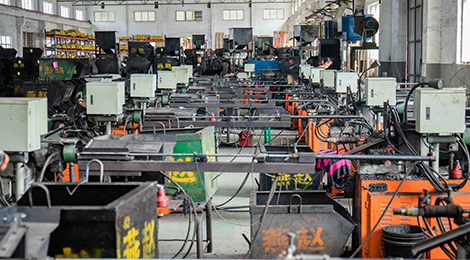High-Quality Famous 307A Bolts - Durable and Reliable Fasteners
sept. . 17, 2024 03:57 Back to list
High-Quality Famous 307A Bolts - Durable and Reliable Fasteners
Understanding the Importance of Famous 307A Bolts in Engineering
In the complex world of engineering, the choice of fasteners is crucial for ensuring the reliability and safety of structures and machinery. Among the myriad types of fasteners, the famous 307A bolts stand out for their unique properties and applications. These bolts have earned a reputable status in the field due to their specific design features, material compositions, and the performance they guarantee under various conditions.
What are 307A Bolts?
307A bolts are specifically designed fasteners that are primarily used in various industrial applications, ranging from construction to automotive industries. Their designation primarily refers to the ASTM A307 specification, which outlines standards for carbon steel bolts and studs. Specifically, the “A” in 307A signifies that the bolts are produced with a coarse thread and are often utilized in situations where high strength and ductility are necessary.
Material Composition
The material used for 307A bolts is typically low carbon steel, which provides a good balance of strength, ductility, and weldability. This makes them very versatile and capable of being used in environments where they may be subjected to moderate loads. The bolts can also be galvanized or otherwise coated to enhance their resistance to corrosion, making them suitable for outdoor applications or in environments where moisture is a concern.
Applications of 307A Bolts
famous 307a bolts

One of the most significant advantages of 307A bolts is their adaptability. They are widely used in construction for securing structural steel components. For example, when erecting buildings, bridges, and other large structures, these bolts play a crucial role in maintaining structural integrity. Additionally, their use is prevalent in machinery manufacturing, automotive assembly, and other industrial applications requiring reliable fastening solutions.
In residential construction, 307A bolts are commonly used to fasten wood and steel components, ensuring a solid structure that can withstand various forces. Their ability to endure dynamic loads makes them an essential choice for such applications.
Performance Characteristics
307A bolts are known for their mechanical properties, which include a minimum tensile strength of approximately 60,000 psi. This quality is vital for engineers who require assurance that their components will not fail under the stress of application. Moreover, their design allows for effective load distribution, preventing localized stress points that could lead to bolt failure.
Another noteworthy characteristic is the ease of installation. The coarse thread design of the 307A bolts simplifies the fastening process, reducing the time and labor required to secure components. This feature, combined with their reliable performance, makes them a go-to fastener in many industries.
Conclusion
In conclusion, the famous 307A bolts represent an essential element in the construction and manufacturing industries. Their robust design, versatile applications, and reliable performance characteristics make them a favored choice among engineers and construction professionals. As we continue to innovate and seek advancements in engineering, the foundational role of reliable fasteners like the 307A bolts cannot be understated. They contribute not only to the functionality of structures but also to the overall safety and efficacy of various projects, making them a vital component in the world of engineering.
Latest news
-
Premium Phosphated Drywall Screws Supplier | Durable, Rust-Resistant
NewsAug.27,2025
-
Reliable Wire Bolts Suppliers | Quality Zinc Plated Fasteners
NewsAug.26,2025
-
Wire Bolts Suppliers: Durable & Reliable Fasteners for Every Project
NewsAug.25,2025
-
Premium Cabinet Bolts Supplier | Wholesale & Custom Solutions
NewsAug.24,2025
-
Reliable Axle Nuts Supplier | Quality & Precision Fasteners
NewsAug.23,2025
-
Durable Bolts for Lawn Mower Handle - Top Supplier & Manufacturer
NewsAug.22,2025
